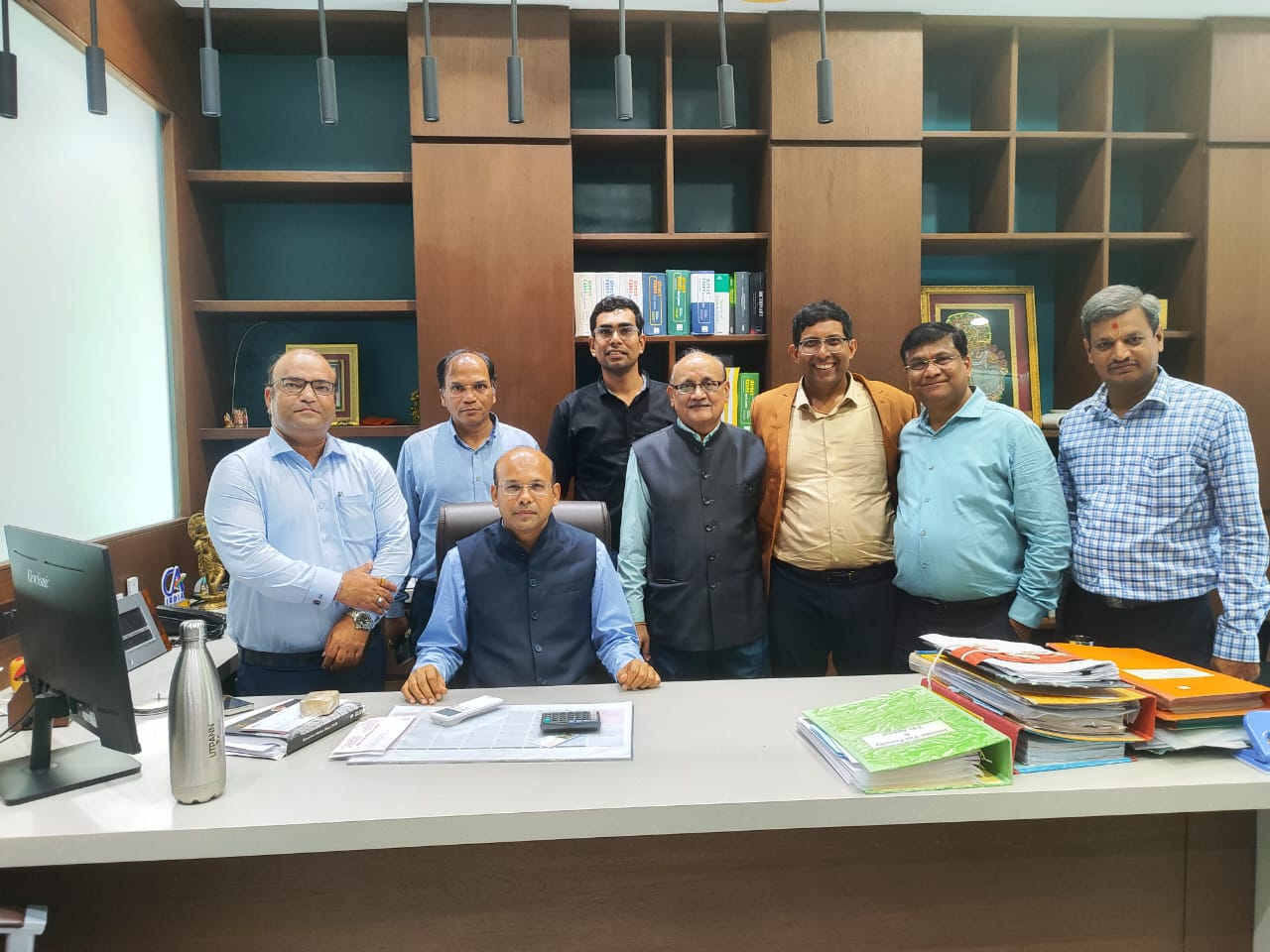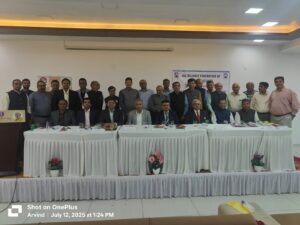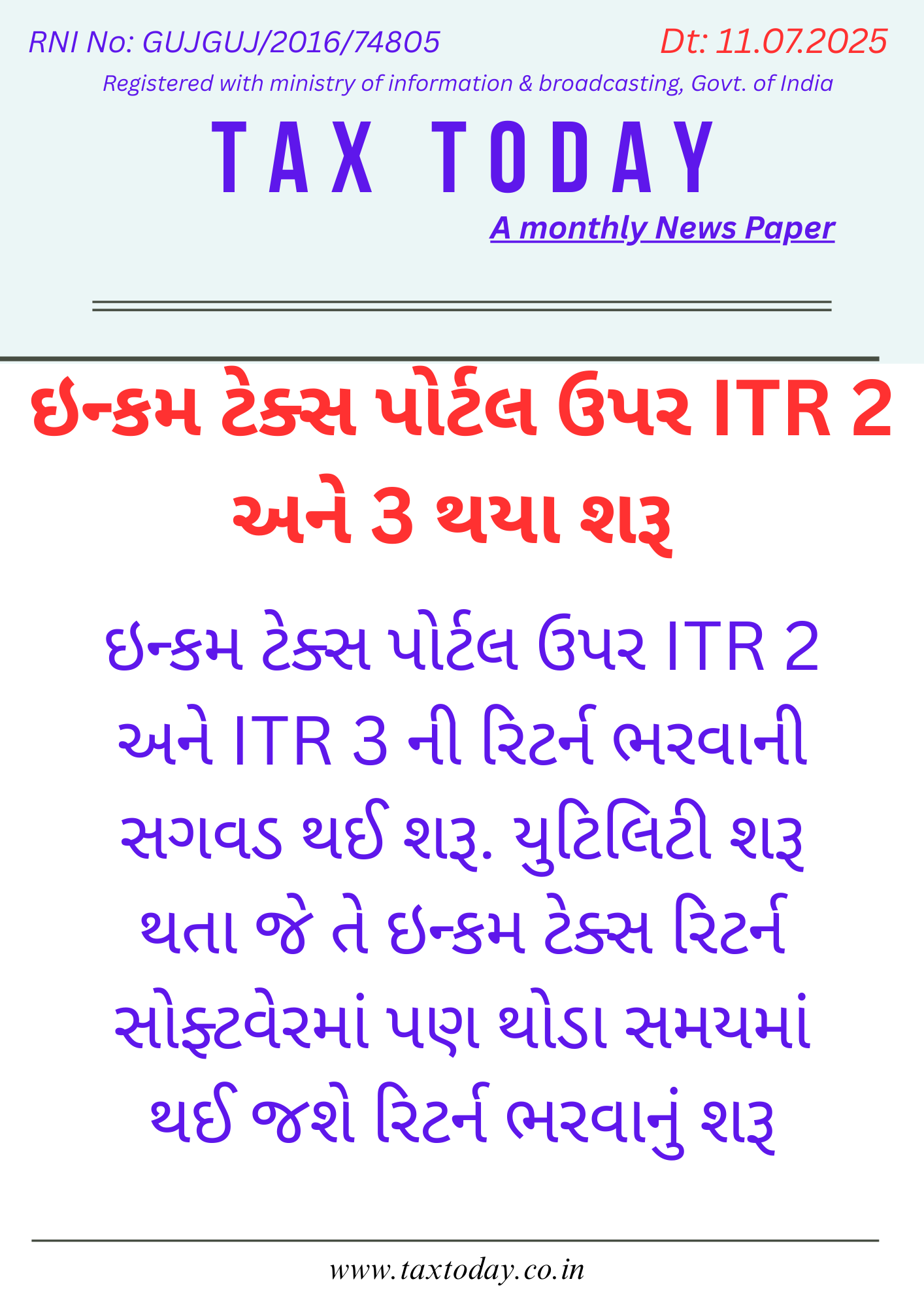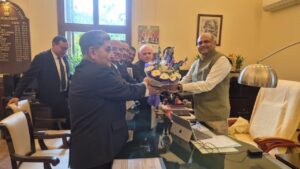GST WEEKLY UPDATE : 46/2023-24 (11.02.2024) By CA Vipul Khandhat

-By CA Vipul Khandhar
- GST – FAQ’s Online payment through Internet Banking & Debit/ Credit cards:
- How can I get a CPIN ?
You have to login on GSTN portal and fill the particulars of the challan online and thus the challan is generated on GSTN portal will provide a unique 14 digit ID (CPIN).
- How can I pay online?
After generating challan on GSTN portal, opt for e-payment mode. GST can be paid through Internet Banking & Debit/ Credit cards.
- For payment through Internet Banking: choose Internet banking as payment option. A drop down box detailing names of various authorised banks would be displayed from which you have to choose your preferred bank for Internet Banking. Once you choose the bank for payment of taxes, GSTN portal will direct you to the website of the selected
- For payment through Cards : Choose Debit /Credit card option and fill in the details as
- How can I pay GST if I do not have Internet Banking/ Debit/Credit Cards?
GST up to Rs.10,000 can be paid at the designated branch of authorized Bank over the counter through cash/cheques/draft etc, which is payable at par locally.
For this, tax payer will access GSTN for generation of a challan. Thereafter you have to approach the branch of authorised bank for deposit of the challan along with cheques/ draft (payable at par locally) or cash during business hours. You have to carry two copies of the challan, one will be kept by Bank while other will be handed over to you as acknowledgement.
- How I can change payment option selected in challan?
Challan can be edited before finalization, once the challan is finalised, no change in the payment details will be permissible on the Bank’s portal. For any change in the particulars, you have to abort the transaction and go back to GSTN portal and re-initiate the process.
- For how many days CPIN will be valid ?
The CPIN is valid for only 7 days from the date of generation, after which the system will not accept the payment.
- What will happen after I confirm the payment of tax at my Bank’s site?
Bank will process the transaction online by debiting the Bank account indicated by you and generate a printable acknowledgment indicating the Challan Identification Number (CIN), date and time of payment and a statement confirming receipt of amount by the bank will be provided by GSTN.
- How can I know that I have completed tax payment using online facility?
After the successful completion of a transaction, the bank will populate a Challan Identification Number (CIN) which will be a unique 17 digit number containing 14 digit CPIN and unique 3 digit Bank code. This CIN is an indicator of a successful transaction, you can also check your online Bank statement to verify the tax payment.
- If I encounter any problem while making payment through internet whom should I contact?
If any problem encountered at the GSTN portal website while entering non-financial data then contact GSTN. If any problem encountered while entering the financial details at the net- Banking webpage of your Bank, then you should contact your Bank for assistance.
- What is the timing for making payment through internet?
Payment facility through internet is available 24×7, but if you complete your transaction between 8.00 AM to 8.00 PM it is accounted on same day, and if the transaction is done after 8.00 PM it will accounted in next day.
- How can I amend the tax amount of the challan already paid ?
Amendment / correction in the challan not possible at Bank level, please contact GSTN.
- Can I pay both Central and State tax in the same challan ?
Yes, you can pay Central Goods and Services Tax (CGST), State Goods and Services Tax (SGST) and Integrated Goods and Services Tax (IGST) in the single challan through GSTN portal.
2. Extension of RoSCTL Scheme for Export of Apparel/Garments and Made-ups till March 2026:
The Ministry of Textiles vide Notification F. No. 12015/11/2020-TTP dated February 08, 2024, extends the Rebate of State and Central Taxes and Levies (RoSCTL) scheme for apparel/garments and made-ups till March 31, 2026, excluding them from RoDTEP. Rates will be periodically reviewed. A committee will monitor expenses quarterly to ensure they don’t
exceed the allocation. Adjustments may occur based on underlying conditions. Eligibility criteria remain unchanged. Other textile products not covered under RoSCTL can benefit from RoDTEP. The Department of Revenue will implement the scheme digitally, issuing transferable Duty Credit Scrip without requiring export proceeds realization. Guidelines from August 13, 2021, remain effective until March 2026.The Government has decided to continue the RoSCTL scheme for a period of 2 years beyond April 01, 2024 and upto March 31, 2026 for apparel/garments (under Chapter 61 and 62) and Made-ups (under Chapter 63) in exclusion of RoDTEP for these Chapters.
- AAR & Important Judgements:
(i) Hon’ble Madras Highcourt Decision Regarding GST Recovery On Mining Lease Royalty:
A division bench of the Madras High Court, consisting of Justices R Mahadevan and Mohammed Shaffiq, has restrained Tamil Nadu government from recovering the GST on seigniorage/royalty towards mining leases until a Constitution bench of the Supreme Court takes a decision on the issue.
“It is made clear that there shall be no recovery of GST on royalty until the nine-judge Constitution bench takes a decision,” the order stated.
It ordered the petitioners to submit their objections/representations within four weeks to the show-cause notices sent by the authorities concerned. Upon receipt of the objections/representations, the authorities shall proceed with the adjudication on the merits after affording reasonable opportunity to hear them.
However, the adjudication orders shall be kept in abeyance until the bench decides on the issue. The petitions have been filed challenging the vires of certain provisions in 2017 government order as amended in 2018, a 2021 circular issued by the Central Board of Excise and Customs, the show cause notices proposing to levy GST on mining lease/royalty, and adjudication orders levying/demanding GST on mining lease/royalty.
(ii) Hon’ble Telangana Highcourt Regarding Land development rights on a Joint Development Agreement for residential projects to attract GST:
(Applicant – Prahitha Construction Private Limited)
The petitioner moved the High Court with a prayer that when the land is transferred to the developer by the landowner under Joint Development Agreement (JDA), it should not attract GST. It was argued that GST on transfer of development rights by the landowner under a JDA is essentially similar to sale of land which does not attract GST. The transfer of the right to develop under a joint development agreement shall be taxable under GST at the time of entering into the said agreement. It has now been clarified that there is a distinction between the sale of land and the transfer of rights for the sale of land.
“The ruling supports the notion that the exclusion of land sale from the definition of supply, as per Schedule III, is exhaustive, rendering the transfer of development rights taxable unless specifically exempted. The judgement affirms the government’s stance and the Industry stakeholders can take note of this pivotal ruling, as it clarifies the tax obligations arising from complex real estate transactions and ensures compliance within the evolving GST framework,” he said.
(iii) Hon’ble Calcutta High court Regarding Substantive changes cannot be introduced in the Order by way of rectification of errors under Section 161 of the CGST Act:
(Applicant – Sajal Kumar Das)
The Hon’ble Calcutta High Court in the case of Sajal Kumar Das v. State of West Bengal [M.A.T. No. 2475 of 2023 dated January 09, 2024] allowed the writ petition and set aside the Order thereby holding that substantive changes cannot be introduced in the Order by way of rectification of errors under Section 161 of the Central Goods and Services Tax Act, 2017 (“the CGST Act”).
Held:
The Hon’ble Calcutta High Court in the case of M.A.T. No. 2475 of 2023 held as under:
- Noted that, as per Section 161 of the CGST Act the Respondent Authority should be able to point out the error which is apparent on the face of record, for rectification. However, the Respondent failed to point out the error in the Impugned Order which is apparent on the face of record.
- Opined that, the order suffers illegality as the Impugned Order has essentially been rewritten which is beyond the powers exercised under Section 161 of the CGST Act.
- Held that, the Impugned Order is quashed. Hence, the writ petition is allowed.
Relevant Provision:
Section 161 of the CGST Act:
“161. Rectification of errors apparent on the face of record:-
Without prejudice to the provisions of section 160, and notwithstanding anything contained in any other provisions of this Act, any authority, who has passed or issued any decision or order or notice or certificate or any other document, may rectify any error which is apparent on the face of record in such decision or order or notice or certificate or any other document, either on its own motion or where such error is brought to its notice by any officer appointed under this Act or an officer appointed under the State Goods and Services Tax Act or an officer appointed under the Union Territory Goods and Services Tax Act or by the affected person within a period of three months from the date of issue of such decision or order or notice or certificate or any other document, as the case may be:
Provided that no such rectification shall be done after a period of six months from the date of issue of such decision or order or notice or certificate or any other document:
Provided further that the said period of six months shall not apply in such cases where the rectification is purely in the nature of correction of a clerical or arithmetical error, arising from any accidental slip or omission:
Provided also that where such rectification adversely affects any person, the principles of natural justice shall be followed by the authority carrying out such rectification.”
Disclaimer:
This publication contains information for general guidance only. It is not intended to address the circumstances of any particular individual or entity. Although the best of endeavour has been made to provide the provisions in a simpler and accurate form, there is no substitute to detailed research with regard to the specific situation of a particular individual or entity. We do not accept any responsibility for loss incurred by any person for acting or refraining to act as a result of any matter in this publication.
(Author is a well known Chartered Accountant practicing at Ahmedabad)





